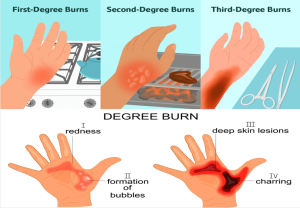The cold wind of winter is knocking on the door. Cold diseases affect children more during this time. Taking some precautions can prevent the spread of germs and keep the winter season safe for them.
Things to be followed for this:
Handwashing Habit: Children should try to develop a habit of washing hands regularly, be it winter or summer—anytime. Especially after returning home from outside and before eating anything. This practice prevents germs from entering the body and keeps many diseases at bay.
Etymology of the Sneeze-Cough: Children should be taught to cover their mouths when sneezing or coughing and to use tissues or arms instead of hands. It cannot spread germs in the environment.
Clothing: Wash children’s clothes and school clothes after each use, and change their bed pillow covers and sheets frequently. Keep separate towels for them. Apart from this, make sure that children do not have wet clothes on their bodies.
Diet: Many people drink insufficient water in cold weather. In that case, make sure that your child is drinking enough water. Try to keep foods that are nutritious, vitamin-rich, and keep the body warm on the daily food list, which will help boost the immunity of children.
Keeping away from sick people: If anyone in the house is sick with a cold, try to keep children away from them. Similarly, if the child has a fever and cough, it is better not to send him to school.
Caution with a toothbrush: If someone in the house is sick, keep their toothbrush separate. Also, change children’s toothbrushes frequently.
Things to do when going out: Choose clothes that are comfortable for children. As babies have sensitive skin, soft and high-quality woolen fabrics may be suitable. Wear socks, hats, and gloves when going outside.
Also, remind children not to touch their faces when going outside. Be especially careful after touching public spaces (bus seats, door handles, and public bathrooms). When taking children out in the sun, apply sunscreen to the exposed parts of their bodies.
Dr. Kamruzzaman Nabil, Isfahan Medical University, Iran
Most Important Post For You

What are the symptoms of diabetes?
Many people are unknowingly suffering from type 2 diabetes due to not knowing the symptoms. Doctors often diagnose diabetes when they perform a blood or

What to do if diagnosed with type 2 diabetes?
By making some changes in their daily lives, many people can live a healthy life by keeping diabetes under control. However, it is important to

Hyperglycemia or Increased Sugar
Increased blood sugar, or blood sugar level, is called hyperglycemia. This is a known problem for diabetic patients. Hyperglycemia can occur in patients with any

Diabetic Food List
If you need to change your diet, try making small changes each week. A healthy diet will help keep your diabetes under control. At the

What to do if burned
Improper treatment can lead to various long-term complications including wound infection. If you don’t treat cuts properly, they can get infections and other problems in

What is the way to eliminate gastric?
Gastric problems happen to more or less everyone. If you know how to remove the gastric, you can get rid of this problem. Gastric symptoms

5 Strategies to Prevent Diabetes
Healthcare professionals first advise individuals with diabetes to avoid consuming sugary or sweet foods. And this is exactly why there is a common belief that

You don’t have to give up sugar, pay attention to 3 habits to stay diabetes free
Blood sugar levels are high. Many favorite foods had to be eliminated from the diet. From tea to chutney, sugar has been removed from all

Pacemakers in the brain to control Parkinson’s disease
Parkinson’s disease continues to disrupt the normal lives of many people. To control this disease, there are benefits to inserting electrodes into the brain. The

Boost Your Health with Ancient Nutrition Organic Supergreens Powder
At a Glance Introduction: It might be difficult to maintain a balanced diet in the fast-paced world of today. That being said, you can simply

Type-2 diabetes is mostly caused by salt, not sugar.
According to a recent study, the idea that only eating sugar causes diabetes is wrong. Another ingredient known to increase the risk of diabetes is

The benefits of the body if you stop eating sugar for 1 month!
There are a few people who do not like sweets. Rasgolla, pies, and jillipi during the festive season Even if you don’t eat sweets directly,



